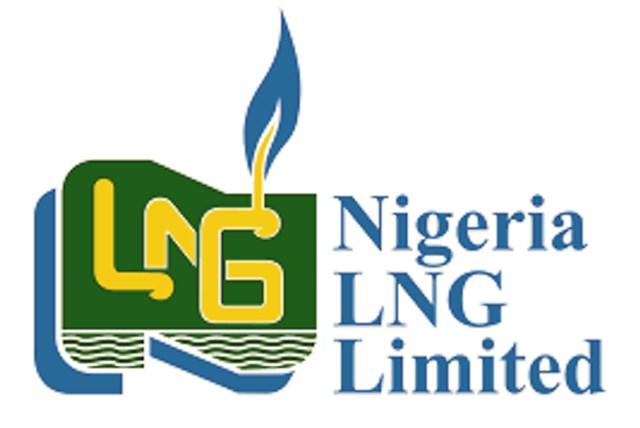Business
NLNG Targets Eight More Plants As Competition Grows

The Nigeria Liquified Natural Gas Limited (NLNG) has said the country needs at least 15 liquefied natural gas trains to be able to stay competitive in the global natural gas markets.
The Managing Director and Chief Executive Officer, NLNG, Mr Tony Attah, said the Train 7 project, for which final investment decision was taken in December 2019, was no longer ambitious for the country.
“We need to monetise our gas now,” he said at the Nigeria Oil & Gas Strategic Outlook Digital Session, with the theme ‘Fortifying the Nigerian oil and gas industry for economic stability and growth’ on Tuesday.
He noted that with the support of its stakeholders, the NLNG was able to take the FID for Train 7 after over 15 years of efforts.
“But then, we look to the future and recognise that the future is also changing with the energy transition and changing energy needs,” he said.
According to Attah, the country has over 200 trillion cubic feet of proven natural gas reserves, the ninth-largest in the world, with the potential for a further 600Tcf in unproven reserves.
“I think it is about time Nigeria really took advantage of the resource because as we can tell in the energy transition, oil will be downplayed because the world wants cleaner energy.
“I believe it’s time for Nigeria to take a bold step forward with respect to gas as the main resource. I think it is time for us to take advantage and position Nigeria for the future in the light of the energy transition. We have gas but it is not about what you have but what you do with it,” he said.
According to him, Nigeria is currently number five in terms of LNG exports in the world.
He said, “We have been dropping but on the back of Train 7, we hope to gain ground again. Train 7 is going to increase our LNG capacity from 22 million tonnes to 30 million tonnes. But then, I heard that Qatar, in the same vein of growing into the future, wants to add 30 million tonnes.
“Now, we are aspiring to add eight million tonnes to go to 30 million tonnes but another country is adding 30 million. I think that tells me that Train 7 is no longer ambitious enough for Nigeria.”
Attah stressed the need to start maturing Train 8, 9 and 10 and then look to the future with an ambition of nothing less than Train 15 in order to harness the full value of the huge gas reserves in the country.
“So, we have to set out eyes on the bigger game of Train 8,9,10 and well into the future to at least Train 15 to be able to stay in reckoning and continue to deliver value, like we have seen in the case of Qatar, growing our economy on the back of gas,” he said.
The NLNG boss noted that a growing number of countries had started turning down fossil fuel-based liquids by encouraging the adoption of electric vehicles.
Business
Eazipay Offers Zero-Interest Loans To 150,000 SMEs, Employees

With a mission to ignite growth, encourage business continuity and help businesses and employees thrive, Eazipay is gearing up to propel the dreams of 150,000 SMEs and employees to new heights through her relief fund.
Gone are the days of financial constraints and stifled dreams. With Eazipay’s support, SMEs and employees alike can bid farewell to limitations and embrace a world of endless possibilities.
Whether it’s start up, business expansion or personal development, Eazipay is here to make dreams come true.
The mind-blowing initiative, which kicked off this month, would end in December, and will also offer a range of perks and benefits designed to put a smile on the faces of SMEs and employees alike.
From exclusive discounts to various advisory services and beyond, Eazipay is committed to spreading happiness and creating lasting impact in people’s lives and to the growth of businesses.
The technology company which offers products and services that range from payroll management to IT/Device management and assessments, “Eazipay isn’t just providing financial support but also unleashing a wave of growth and prosperity for SMEs and employees across the nation.
“Interested businesses and individuals can take part in this initiative directly from the Eazipay website: www.myeazipay.com”.
Business
SMEs Critical For Sustainable Dev – Commissioner

The Commissioner of Finance, Lagos State, Abayomi Oluyomi, has described Small and medium Enterprises (SMEs) as a critical engine for sustainable development in any economy.
He said this recently at the 10th anniversary of the Alert Group Microfinance Bank and the opening of their new head office in Lagos.
According to the National Bureau of Statistics, SMEs accounted for about 50 per cent of Nigeria’s gross.
He commended the positive impact of the Alert MFB as it empowers SMEs in the State.
“Alert MFB in the past 10 years has been at the forefront of empowering SMEs in Lagos State, disbursing over N30bn in loans to over 30,000 individuals having small to medium businesses over that period, which is quite remarkable”, he said.
Speaking, the Group Managing Director of Alert Group, Dr Kazeem Olanrewaju, revealed that the financial institution commenced business in 2013 as a microfinance bank.
“We started this journey in 2013 and it has been expanding. Today, they have about 10 branches across Lagos. They have supported well over 30,000 clients and have disbursed over N30bn.
“The company has been profitable since the second year. Looking at the market and the available opportunity, the Alert MFB board decided to come together to establish a Microfinance Institute (MFI), which is the Auto Bucks Lenders”, Dr. Olanrewaju said.
The GMD further stated that the company was focused more on supporting businesses and small and medium enterprises.
“The loan to support business represents over 98 per cent. The consumer loans you will see are the ones given to entrepreneurs. So, the area of focus of Alert MFB and Auto Bucks Lenders is to support businesses across the country.
“With the establishment of Auto Bucks Lenders, we have the opportunity to also do business outside Lagos. So, presently, we have offices in Ogun State and Oyo State. We intend to go to every part of Nigeria to support what we are doing”, he declared.
Business
Retailers Explain Price Drop In Cement Cost

The cement market, in the last couple of weeks, has seen a significant turnaround with prices tumbling from between N10,000 and N15,000 per 50kg bag to between N7,000 and N8,000.
The sudden rise in the prices of cement and other major building materials in February this year upsets the construction industry, especially in real estate, where many developers were forced to abandon building sites.
A recent market survey conducted by The Tide’s source in different locations across the country confirmed a price drop, ranging between N7,000 and N7,500 per bag, though BUA cement is selling for N7,500 to N7,800 per 50kg bag, depending on location.
Both entrepreneurs and major distributors who were interviewed, explained that the price drop is due to low demand and government’s intervention.
At the peak of the price hike, the Federal Government called a meeting with major producers where it was agreed that a bag of cement should be between for N7,000 to N8,000, depending on location.
But the producers did not comply with this agreement immediately, followin which “Nigerians stopped demanding for cement; many project sites were abandoned as developers sat back and waited for the prices to come down.
“So, what has happened is an inter-play of demand and supply with price responding, which is Economics at work”, Collins Okpala, a cement dealer, told the source in Abuja.
In the Nyanya area of the Federal Capital Territory, a 50-kg bag of Dangote cement now sells for between N7,000 and N7,500, while BUA cement sells for between N8,500 and N9,500, down from between N11,000 and N12,000 respectively.
In Lagos, the product has seen significant price drop too. In Ojo area of the state, Sebastin Ovie, a dealer, told our reporter that what has happened is a crash from the January price, attributing the crash to low demand and stronger naira.
“The current price of the product is between N7,000 and N7,500 per 50kg bag, depending on the brand. This is a significant drop from the average of N12,000 which most dealers were selling in February and March”, he said.
A dealer in Agege area of the state who identified himself as Taofik Olateju, told the source that sales are picking up due to the drop in price.
He recalled that Nigerians at a point stopped buying due to the high price of the product at N15,000 per bag.
“I am sure most dealers ran at a loss then because we had mainly old stocks which we wanted to offload quickly”, he said, confirming that the product sells for between N7,500 and N8,000, depending on the brand and the demand for the brand.
Continuing, Olateju noted that “because the naira is now doing well against the dollar, it will be unreasonable for manufacturers to continue to sell the product at the old prices. I also believe that the federal government’s intervention and the threat to license more importers may have worked, leading to the reduction in price”.
In Enugu, the source reports that the product sells for between N7,200 and N7,500 depending on the brand and location.
“This is a city where the price of a 50kg bag went for as high as N12,000 and N13,000 in some cases in February and March”, Samuel Chikwendu said.
He added that the prices of other building materials, especially iron rods, have also dropped considerably which is why, he said, activities are picking up again at construction sites.
The story is slightly different in Owerri, the capital of Imo State, where Innocent Okonkwo told the source that low demand was also driving the price drop, adding that a 50kg bag was selling for N9,000 on the average in the state.
Sundry market observers are optimistic of further price reductions, but they remain cautious as manufacturers, wholesalers, and retailers continue to play critical roles in setting prices for end-users.
They lamented, however, that despite Nigeria’s status as one of the largest producers of cement in Africa, the price of the product continues to rise, particularly in the face of high inflation impacting the building materials market generally.
Okpala in Abuja highlighted the variations arising from direct sourcing from manufacturers versus procurement through dealers, with traders holding old stocks selling products at prices ranging from N8,500, N8,300 to N8,000 per bag.
Lucy Nwachukwu, another dealer in Abuja, said the significance of procurement volume in determining cement costs, noting that stability in prices has been observed over the past month, with the product retailing for between N7,000 and N7,800 depending on the brand.
In Port Harcourt also, a customer, Daniel Etteobong Effiong, said the price goes between N7500 to N8500, depending on the brand and the location one is buying from.
-
Niger Delta2 days ago
C’River Declares NBS Child Labour Ranking Unrealistic
-

 Business2 days ago
Business2 days agoSMEs Critical For Sustainable Dev – Commissioner
-

 Featured2 days ago
Featured2 days ago118 Inmates Escape As Rainstorm Destroys Niger Prison
-
Politics2 days ago
Monarch Cautions Against Divisive Politics, Declares Support For Fubara
-
Sports2 days ago
AFN Lists Strong Squad For Bahamas Relays
-
News2 days ago
We’re Open To Partnerships To Enhance Status Of Rivers People -Fubara
-
Nation2 days ago
Banigo Decries Malaria Prevalence
-
Rivers2 days ago
Ekpeye Traditional Rulers Seek Help For Odiemudie Community

